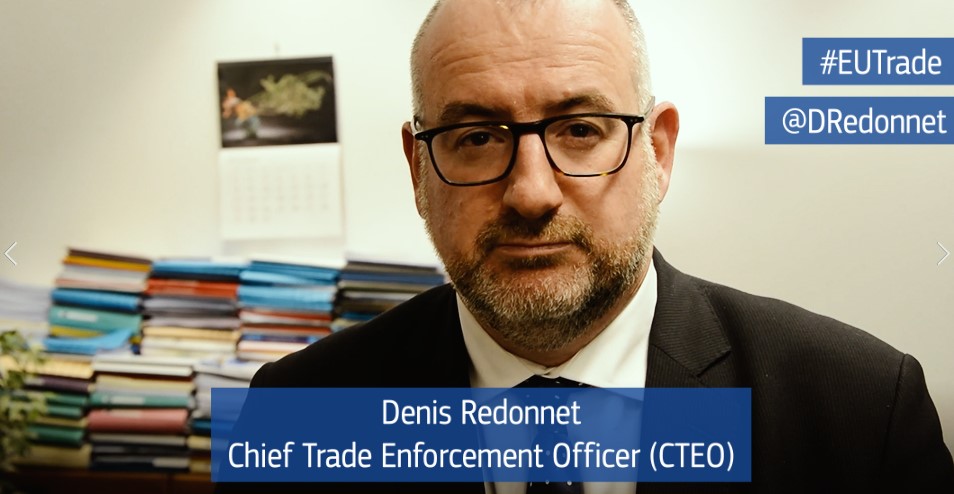Low-key EU player’s new job may help sell Mercosur deal
Bloomberg | 2 September 2020
Low-key EU player’s new job may help sell Mercosur deal
By Jonathan Stearns
A month before he resigned as European Union trade commissioner over an Irish coronavirus controversy, Phil Hogan made a much less publicized job announcement : appointing the first person to police the bloc’s slew of commercial agreements with the rest of the world.
The late-July selection of veteran EU insider Denis Redonnet as chief trade enforcement officer coincides with the 27-nation bloc’s continuing preparations to vote on its hard-fought — and controversial — draft accord with the Mercosur group of Argentina, Brazil, Paraguay and Uruguay.
With the Mercosur deal provoking grass-roots rumblings across Europe, in the short term Redonnet’s job may serve EU domestic political goals more than external trade objectives by helping to sell the accord to skeptics.
Political hurdles are mounting. On Aug. 21, Germany cited “serious questions about whether the spirit of the deal can be implemented” as a result of deforestation in the Amazon region. Six days later, Brazilian Vice President Hamilton Mourao expressed concern that the EU-Mercosur agreement is in jeopardy and mentioned “communication problems” with Europe.
At stake is Europe’s continuing campaign to pry open markets worldwide and counter U.S. protectionism under President Donald Trump following major EU free-trade agreements with Canada and Japan.
Reached in mid-2019 after 20 years of deliberations, EU-Mercosur is the biggest accord the bloc has ever negotiated in terms of tariff reductions. Duties on just over 90% of two-way trade, which was worth 77 billion euros ($91 billion) last year, would be scrapped mainly over a decade.
The deal also lays out environmental-protection standards just as destruction of the Brazilian rainforest has emerged as a lightning rod for the agreement’s EU critics, who worry about damaging the bloc’s credibility on climate change.
In largely symbolic moves that nonetheless acted as a political barometer, parliaments in the Netherlands and Austria have expressed opposition to the Mercosur pact. EU farmers objecting to more foreign competition present another line of resistance.
For the deal to take effect, it needs endorsements in Europe by EU governments (deciding collectively) and by the European Parliament. Their scrutiny is due to start next year, once the text of the draft deal has gone through the lawyers.
It is here where Redonnet, a French native, trained economist and trade-law expert, can be a political asset for the Mercosur pact’s supporters, who cite the leverage the deal gives the EU in ensuring Brazil’s respect for the international Paris Agreement to fight global warming.
Among Redonnet’s main tasks is ensuring that EU trade partners meet their commitments on sustainable development, not least in the area of climate.
Hogan repeatedly argued that the EU-Mercosur alliance would help prevent climate backsliding by Brazil. While he’ll be absent from the rest of the EU ratification debate, expect his argument to be taken up by other supporters and Redonnet’s position to gain prominence.






